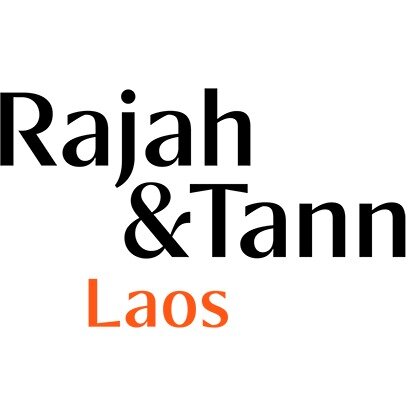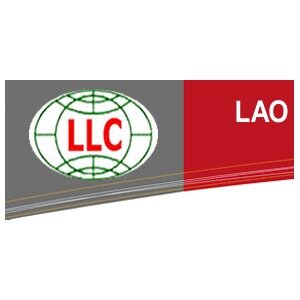Best Public-Private Partnerships (PPP) Lawyers in Laos
Share your needs with us, get contacted by law firms.
Free. Takes 2 min.
Or refine your search by selecting a city:
List of the best lawyers in Laos
About Public-Private Partnerships (PPP) Law in Laos
Public-Private Partnerships, commonly known as PPPs, are cooperative arrangements between public entities and private sector investors to finance, build, and operate projects such as infrastructure, utilities, and public services. In Laos, PPPs play a vital role in development, allowing the government to tap into private investments, expertise, and technology for projects that benefit the nation. The law governing PPPs in Laos establishes a legal framework designed to support these collaborations, ensuring transparency, fair transactions, and a clear allocation of roles and risks between public and private partners.
Why You May Need a Lawyer
Engaging in PPP projects in Laos involves navigating a complex web of laws, regulations, and contractual arrangements. You may need a lawyer for several reasons, including:
- Drafting or reviewing PPP contracts to ensure fairness and legal compliance
- Negotiating terms and obligations between public agencies and private investors
- Understanding regulatory requirements and licensing processes
- Managing risks and resolving disputes that may arise during the project lifecycle
- Securing land use rights and complying with environmental laws
- Assisting with bidding, procurement, or tendering processes
- Advising on tax, customs, and financial obligations related to PPP projects
- Guiding foreign investors through local partnership and investment requirements
Having legal assistance is essential for successful participation in PPP projects, whether you are a private investor, a public official, or a consultant.
Local Laws Overview
Laos has developed specific legal frameworks to govern PPPs, most notably the Law on Public Private Partnership, alongside related investment and procurement laws. Key aspects include:
- PPP Law: This law details the procedures and requirements for PPP project approval, partner selection, and implementation. It outlines how risks, responsibilities, and rewards are shared between parties.
- Bidding and Procurement: Public projects require transparent procurement processes, including open bidding and selection criteria, to ensure competitiveness and reduce corruption.
- Licensing and Approvals: PPP projects often require multiple approvals from relevant ministries and regulatory agencies, particularly in sensitive sectors such as energy, transportation, water, and health.
- Land Use and Environmental Compliance: Laws require that all projects comply with national land management and environmental protection standards, including environmental impact assessments.
- Dispute Resolution: The law provides mechanisms for dispute settlement, either through national courts or, often preferred, through arbitration arrangements specified in contracts.
- Investment Protections: Foreign and domestic investors are provided certain protections and guarantees under Lao law, including rights relating to land use, repatriation of profits, and protection of assets.
Frequently Asked Questions
What types of projects are suitable for PPPs in Laos?
Typical PPP projects include transportation infrastructure such as roads and bridges, energy projects like hydropower plants, water supply and sanitation systems, telecommunications, education, and healthcare facilities.
Who can participate in PPP projects?
Both domestic and foreign private entities can participate, often in partnership with relevant ministries or state-owned enterprises. There are specific eligibility requirements depending on the sector and project size.
What government bodies oversee PPPs in Laos?
The Ministry of Planning and Investment oversees most PPP projects, in coordination with sector-specific ministries such as energy or public works, and the national PPP Committee.
How are PPP partners selected?
Partners are generally selected through competitive bidding processes. However, direct negotiations may be allowed in certain cases, subject to strict legal guidelines.
Are foreign investors allowed in PPP projects?
Yes, foreign investors are welcomed and protected by Lao law, provided they comply with applicable regulations and obtain the necessary licenses and approvals.
What are the main legal risks in PPP projects?
Key risks include contract disputes, difficulties securing land rights, environmental compliance challenges, changes in policy, and payment or revenue risk. Legal counsel can help mitigate these risks.
Do PPP projects require environmental impact assessments?
Yes, most PPP projects in Laos require formal environmental impact assessments, particularly in sectors with potential environmental consequences.
How long does it take to approve a PPP project?
Approval timelines vary, but projects may take several months or longer, depending on complexity, the need for environmental and social assessments, and regulatory reviews.
Can PPP contracts be renegotiated?
Contracts can allow for renegotiation under certain conditions, such as unforeseen events or significant project changes, but must comply with legal procedures and partner agreement.
How are disputes resolved in PPP projects?
Disputes may be resolved through courts, but arbitration is a common and often preferred method. The approach depends on what is agreed in the contract.
Additional Resources
Individuals and organizations seeking more information or support on PPPs in Laos can refer to the following:
- Ministry of Planning and Investment - Responsible for overall management and coordination of PPP projects
- Ministry of Justice - Provides legal interpretations and support for regulatory inquiries
- State Audit Organization - Offers oversight and transparency guidance for public sector projects
- Lao National Chamber of Commerce and Industry - Provides resources for private sector participants, including foreign investors
- Major international organizations like the Asian Development Bank and World Bank, which regularly support capacity building and technical assistance for PPPs in Laos
- Licensed law firms and consultancies in Vientiane specializing in PPP and investment law
Next Steps
If you are considering participating in a PPP project or require legal advice regarding PPPs in Laos, consider the following steps:
- Identify the nature and scope of your project or legal issue
- Consult with a lawyer who specializes in Lao PPP law and investment regulations
- Prepare all necessary documents, including business plans, project proposals, and supporting materials
- Engage early with relevant government ministries to understand approval requirements
- Review and negotiate all contracts and agreements with legal guidance to protect your interests
- Ensure ongoing compliance with all regulatory, environmental, and reporting obligations throughout the project lifecycle
PPP projects create significant opportunities but also require careful legal navigation. Seeking specialized legal advice early can help you avoid common pitfalls and maximize your project's success in Laos.
Lawzana helps you find the best lawyers and law firms in Laos through a curated and pre-screened list of qualified legal professionals. Our platform offers rankings and detailed profiles of attorneys and law firms, allowing you to compare based on practice areas, including Public-Private Partnerships (PPP), experience, and client feedback.
Each profile includes a description of the firm's areas of practice, client reviews, team members and partners, year of establishment, spoken languages, office locations, contact information, social media presence, and any published articles or resources. Most firms on our platform speak English and are experienced in both local and international legal matters.
Get a quote from top-rated law firms in Laos — quickly, securely, and without unnecessary hassle.
Disclaimer:
The information provided on this page is for general informational purposes only and does not constitute legal advice. While we strive to ensure the accuracy and relevance of the content, legal information may change over time, and interpretations of the law can vary. You should always consult with a qualified legal professional for advice specific to your situation.
We disclaim all liability for actions taken or not taken based on the content of this page. If you believe any information is incorrect or outdated, please contact us, and we will review and update it where appropriate.
Browse public-private partnerships (ppp) law firms by city in Laos
Refine your search by selecting a city.












